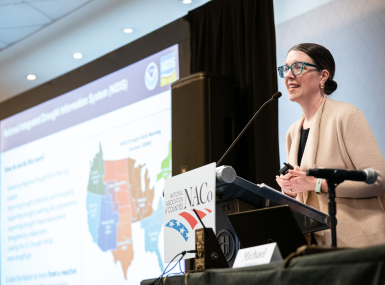EPA conducting survey to learn potential impacts COVID-19 has had on drinking water and wastewater utilities
Upcoming Events
Related News
On October 1, the U.S. Environmental Protection Agency (EPA) released a voluntary survey to learn how drinking water and wastewater utilities across the county have been affected – operationally and financially – by COVID-19. Survey participants will include community water systems and publicly owned wastewater treatment facilities of all sizes, which were pre-identified by the agency based on a statistically repetitive sample draw. The survey will close on October 14.
The 2020 COVID-19 Water Sector Survey will help identify and evaluate certain impacts to water utilities stemming from operational and financial challenges. This voluntary survey will facilitate the collection of useful information in a uniform format to guide the development of technical assistance which could help sustain water utility operations and to support planning for the future. Information collected in the survey will be anonymized prior to any public release.
As owners, users and regulators of water resources and infrastructure, many counties have the responsibility to provide water services and have the authority to own and operate drinking water systems. As counties respond to the current health crisis, the COVID-19 pandemic could lead to massive budgetary impacts for county governments and local taxpayers, with as much as $202 billion in lost revenue and increased expenditures through FY2021. Due to a drastic decrease in revenue, counties will continue to see a decline in local government jobs, impacting county run services. NACo has called on Congress and the administration to provide direct, flexible funding to county governments to offset loss in revenues to maintain critical programs and services.
Attachments
Related News

NOAA outlines help for counties navigating drought’s growing risks
In April, the National Integrated Drought Information System will launch the Mid-Atlantic Drought Early Warning System, which will help county officials allocate resources and attention to mitigate drought-related disasters.

House Agriculture Committee introduces 2026 Farm Bill
On February 13, House Agriculture Committee Chairman G.T. Thompson (R-Pa.-15) introduced the House version of the 2026 Farm Bill, the Farm, Food, and National Security Act of 2026.
